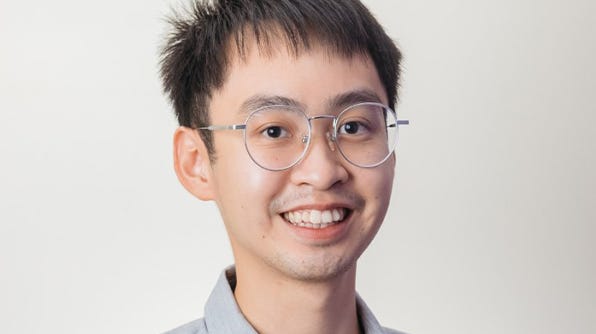Five Science Communicators to Follow on Instagram

Science isn’t complete until it has been communicated to the public. With plenty of social media channels to choose from, communicating thoughts, discoveries, or advice has never been more exciting for scientists working in academia or industry. Alongside other newer social media platforms like TikTok, Instagram is a popular platform for scientists communicating all aspects of life in the lab. This is particularly true for early career or junior researchers.
We asked five top science communicators on Instagram what motivated them to pursue science, what advice they have for somebody starting graduate school, and how they make great content on Instagram. Explore how they use the platform to share striking yet informative photos, videos, and text related to their research, graduate school, scientific work, and life.
Published March 2023.
Quotes have been lightly edited for clarity and brevity.
Priscilla Del Valle
Priscilla (@prisdvmvsscience) is a 4th year PhD student at the University of Texas Southwestern Medical Center. Her research is focused on understanding how the gut microbiota modulates host immune-mediated anti-tumor activity. She is the president of the Society for the Advancement of Chicanos/Hispanics and Native Americans (SACNAS) at the UTSW Chapter and Priscilla uses her social media channels to emphasize that minorities, such as women and Hispanics, belong in science. She also aims to spread information about opportunities in science, and talks about challenges like imposter syndrome that many graduate students face.
Find Priscilla on Instagram, or follow her on TikTok, where she creates content exclusively in Spanish.
For many years, I did not know that people could pursue a career in science. I did not know how to become a scientist or what exactly they did as part of their job. It wasn’t until I started community college that I discovered a research-based program focused on promoting diversity in science. I got accepted and that’s how I started my career as a researcher. I immediately fell in love with microbiology, trying to answer questions that no one knew the answers to, designing experiments, and the idea that one day I could help advance scientific knowledge and help my community.
Denny Chin
Denny (@denny.the.scientist) is a passionate translational research scientist and science communicator who currently works as a microbiology postdoctoral researcher at Corteva Agriscience. He posts useful and relatable research content featuring fun reels, intriguing images, and great tidbits of advice. He invites you to join him on his scientific journey as he navigates life as a researcher.
I became interested in science and microbiology in high school after coming across a show called ‘Monsters Inside Me.’ The show is a documentary series about infectious diseases and includes interviews with patients, researchers, and medical professionals telling their stories about contracting, diagnosing, and treating various infectious diseases, respectively. From then on, I became fascinated by the impact that microbes can have on people and the world. Doing infectious disease and microbiology research in my undergraduate and graduate degrees has only strengthened my interest in microbes.
Tips for creating engaging content and inspiring other scientists on social media
Priscilla Del Valle
“Have an objective: It doesn’t have to be a perfect one but just an idea of the impact you want to have with your content. My goal was to show people in science that it is okay to struggle, that graduate school is HARD, and it is okay. Because sometimes we see a lot of people’s accomplishments and we think that we are falling behind or we start having impostor syndrome.”
Denny Chin
“Create content that offers value to your target audience. Value is very broad, and it can take on many forms. For example, teaching a new concept, sharing thoughts on a neglected topic, or even sharing humor can all be valuable depending on who your target audience is.”
Leonardo Ferreira
“Non-scientists want to peek behind the curtain and see what it is like to do research, to make scientific discovery their job and driving force. They also want to know what all these steps in research mean to the outside world. I think we owe it to non-scientists and ourselves, who do science Monday-Sunday, to never lose sight of the big picture, of the motivation behind our work. In my content, I always include images from the lab and people working in the lab. Science is done by people and is often an endeavor as social as many others. Long-standing collaborations and new experiments arising from short interactions in corridors and seminars are extremely important to science. I show that doing science is a way of life.”
Sophie Milbourne
“Lots of content creators talk about creating content with your audience in mind. Of course, this is really important, but creating content for whatever platform you want is a time investment, so you need to be creating content for yourself, too. Whether you want to try making a new style of video, experiment with creating illustrations for an Instagram post, learn more about a new topic and share that, or if you want to develop audio editing skills, create those posts that are for you as well as ones that are for your audience. Beyond that, be yourself, remember that the block button is your friend, and have fun with it.”
Maria Sharif
“Sharing the content you enjoy making is key. You don’t have to follow any specific rules or trends; just share what you love and are passionate about, and people will sense that and be inspired”.
Dr. Leonardo Ferreira
Leo (@leoinamerica) is an Assistant Professor of Microbiology and Immunology at the Medical University of South Carolina (MUSC), where he designs and develops engineered immune cell therapies for autoimmune disease, cancer, and aging. He shows that science is a way of life for him and many others through his social media channels, posting images of the lab and people working in it to demonstrate that science is also social!
Follow Leo on Instagram or via his lab’s website, LinkedIn, Facebook, or Twitter.
I always wanted to be a scientist. As a kid, I would skin my knees playing soccer quite often and always marveled at the power of my body to heal the wounds and regenerate the tissue, so I knew that one day I had to become a scientist and make discoveries about those processes. In high school, I remember going to the public library and picking up books from the college section. The one that left an impression on me was a biochemistry textbook; I couldn’t stop staring at the chemical structures of sugars and proteins and DNA. They were so complex and yet so tangible! I appreciated that the structures showed biology’s fascinating phenomena and chemistry’s ability to have precise formulas and numbers for every substance. Through science, we can understand the world and make it a better place. The sheer pleasure in teasing out how nature works and creating new molecules and cells and materials is hard to match.
Dr. Sophie Milbourne
Sophie (@soph.talks.science) currently works at the Medical Research Council (MRC) Toxicology Unit. However, she also works as a freelance scientific content creator as part of Soph talks science, helping scientists communicate research with confidence through social media, writing, podcasts, videos, and more.
Hear Sophie on her SciComm Toolkit podcast, and follow her on Instagram, Twitter, and TikTok.
I pursued science simply because it was a subject I was quite good at and I always wanted to learn more. I was particularly fascinated by genetics and embryo development during school so I bought extra textbooks to feed my curiosity. I never envisioned myself as a researcher, and never even knew a career as a science communicator existed, so I wasn’t sure what career I was ever going to have. I just wanted to learn more about our body, cells, reproduction, and medicine, so I just took my career one step at a time and waited to see what options I discovered along the way.
Advice for anybody about to start graduate school
Priscilla Del Valle
“Know that you belong! It happened to me that when I started my PhD, I felt like I did not belong. I thought people were smarter than me, that maybe they had more experience, etc. BUT there is a reason you are there, you got accepted because you are a good candidate that has all the skills to be successful in the program! You are as capable as anybody else. Graduate school is not easy; you’ll be surprised that many people feel the same way you do, and finding a community/support group will greatly help you in this journey! Remember that you are there to train and you are not required to know everything.”
Denny Chin
“Experiments frequently go awry when we do research, and it can be difficult to stay enthusiastic during graduate school. When you are feeling unmotivated, remind yourself of your long-term goals, why you are doing the work that you are doing, and how great it’ll feel when (not if) you overcome the obstacles you are currently facing. This will give you that push that you need to keep trying when research gets tough.”
Leonardo Ferreira
“Grad school is a very exciting time. My one piece of advice would be to learn and explore as much as possible. There is no other time where you’ll be able to work in 3 or 4 different labs in the same year. In science it is important to be a bit like an ant. First you forage, then you focus. Make sure to forage when you’re starting grad school. Also, grad school is a great time to try crazy ideas because, unlike during a postdoctoral fellowship, there is no career clock ticking. This is the time to experiment, fail, and succeed as much as possible.”
Sophie Milbourne
“I know it is much harder to do in practice—I've learnt that from experience—but the best piece of advice I can give is to never compare your grad school journey to anyone else’s. Only compare it to your own from a day, a week, a month, or a year ago! Everyone has different research questions and will have different protocols to follow and challenges to overcome. Some of your peers will have experiments that generate data quite quickly, whereas you might have an experiment that takes months just to get one data point. They are not comparable so remember to mark your own progress only against yourself.”
Maria Sharif
“Don’t hesitate to pursue what you want. If there is a particular project you want to do and/or a specific person or department you want to work for, reach out to them and express your interest. Postgraduate/grad school can be tough sometimes, so doing something you really want will make your journey much more enjoyable.”
Maria Sharif
Maria (@research.diaries) is a Research Associate Scientist at Takeda Pharmaceuticals, where she works on developing novel cancer immunotherapies. Before pursuing a career in industry she completed her PhD at the Institute of Immunology and Immunotherapy at the University of Birmingham.
She shares engaging content about her life as a scientist, her PhD journey, and career chat on her Instagram page.
I’ve been interested in science from a very young age and eventually came to focus my interests on how the human body works. I initially wanted to study medicine at university but my application was unsuccessful, so I ended up being offered a place to study Medical Science at the University of Birmingham instead. I discovered the fascinating world of scientific research and met a number of wonderful and inspirational people through my degree. This motivated me to stay in science and eventually pursue a career in developing cancer immunotherapies.
#SciComm: More Than Just a Hashtag
Watch this webinar on how scientists can use social media to advance their scientific career.
Six Immunologists and Science Communicators You Should Follow
Social media is an invaluable tool when it comes to connecting with people and staying updated on events, including conferences.
Networking and Conference ToolKit
Browse our collection of downloadable tools to prepare for a networking event, including best practices for your LinkedIn profile and your elevator pitch.









